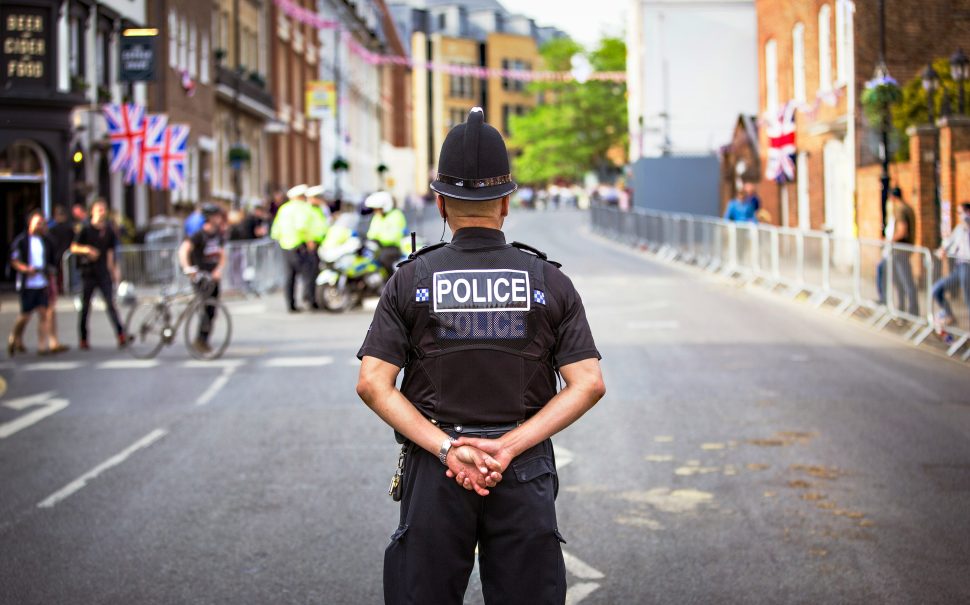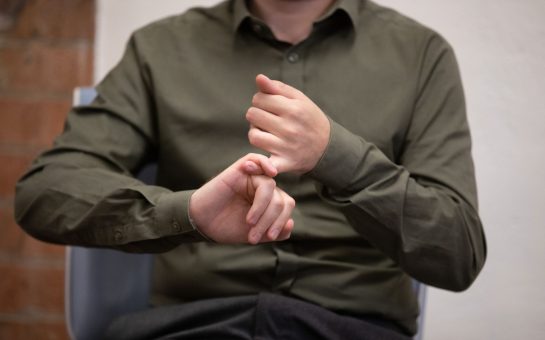Stop and searches in London have significantly declined, but racial disparities persist, according to analysis from new data.
The Metropolitan Police recorded a total of 133,640 stops and searches from May 2023 to April 2024, a decrease of 41,653 (23.8%) from the previous period.
The Met Dashboard indicates that, up until April 2024, 51,240 Black individuals and 52,186 white individuals were stopped and searched.
This is despite black individuals accounting for only 13.5% of Londoners, with white individuals making up 53.8% of the city’s population.
Habib Kadiri, executive director of anti-stop and search group StopWatch, said: “I think a lot of Black Londoners are quite fed up with the quality of the interactions that they receive from officers and there’s no sign that it’s going to get any better anytime soon.
“There are lots of organisations that try to do training, basically, for these officers to try to improve their conduct and we’re still finding that we’re in the same situation as we’ve ever been.
“And for us, I think it’s a case of actually being aware of when it’s even necessary to do a stop-and-search.”
20-year-old North London resident Rhyne McCoy said: “After seeing the statistics, I feel like it puts Black men as a target more than other ethnicities.
“I also feel like that when they see a Black person they feel like they automatically have reasonable grounds to stop and search.”
According to the Metropolitan Police, stops and searches are used to allow officers to investigate their suspicions about an individual without having to arrest them and to protect the public by preventing crime.
In 2022, nationwide data of England and Wales showed that police conducted 530,365 stops and searches, a decline of roughly a quarter (26% or 184,549) compared to 2021.
The Metropolitan Police accounted for 40% of all stops and searches in England and Wales.
These statistics from GOV.UK showed that in 2022 the rate of stops and searches for Black people in England and Wales was 27.2 per 1,000, compared to just 5.6 per 1,000 for white people.
This means Black individuals were nearly five times more likely to be stopped and searched than white individuals.
There were 40.5 stops and searches for every 1,000 Black people in London, compared with 14.2 per 1,000 Black people in the rest of England and Wales.
According to the 2021 Census, England’s Black population is 4.2% (2.4 million), while Wales’ Black population is only 0.9% (28,000) of the total population.
In 2022, the arrest rate for mixed-race people was 14.3 per 1,000 in the Metropolitan Police area, compared to 6.5 per 1,000 in England and Wales.
The ethnicity was not known for 103,221 (20%) of stops and searches in 2022 according to gov.uk
Officers can conduct stops and searches should they feel they have reasonable grounds to suspect someone is carrying stolen property or prohibited articles such as drugs or weapons.
Uniformed officers can stop and search a person without reasonable suspicion under Section 60 of the Criminal Justice and Public Order Act 1994 if authorised by a senior police officer of at least the rank of Inspector.
Additionally, Section 11 of the Public Order Act 2023 gives police the power to carry out suspicionless stops and searches in relation to protest activity, but this must be authorized by an Inspector or a more senior officer.
According to the 2021 Census, London is the most ethnically diverse region in England and Wales.
The ‘black other’ ethnic group had the highest rate overall with 103 stops and searches per 1,000 people in 2021-2022 this group included people who did not identify as black African or black Caribbean or were not recorded as such.
Kadiri also noted that some concerned parents have contacted StopWatch about their children being stopped.
He said: “If you accept the county lines argument, you really need to accept that children are vulnerable.
“And if they’re vulnerable, a stop and search is, generally speaking, not the best means of finding out anything about their vulnerability or solving the issue of their vulnerability.”
Feature image taken by King’s Church International





